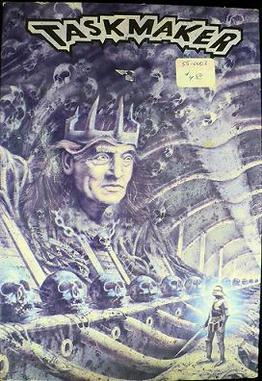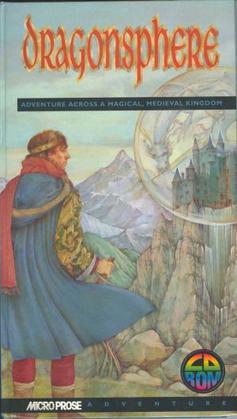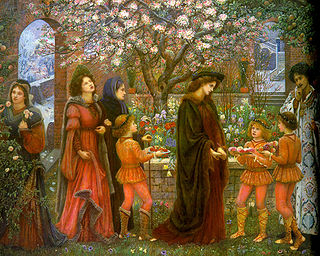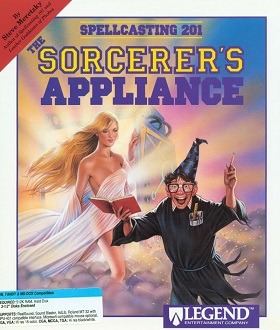Related Research Articles

Steven Eric Meretzky is an American video game developer. He is best known for creating Infocom games in the early 1980s, including collaborating with author Douglas Adams on the interactive fiction version of The Hitchhiker's Guide to the Galaxy, one of the first games to be certified "platinum" by the Software Publishers Association. Later, he created the Spellcasting trilogy, the flagship adventure series of Legend Entertainment. He has been involved in almost every aspect of game development, from design to production to quality assurance and box design.

In fantasy fiction, a lich is a type of undead creature.
Legend Entertainment Company was an American developer and publisher of computer games, best known for creating adventure titles throughout the 1990s. The company was founded by Bob Bates and Mike Verdu, both veterans of the interactive fiction studio Infocom that shut down in 1989. Legend's first two games, Spellcasting 101: Sorcerers Get All the Girls and Timequest, had strong sales that sustained the company. Legend also profited from negotiating licenses to popular book series, allowing them to create notable game adaptations such as Companions of Xanth and Gateway. Legend also earned a reputation for comedic adventures, with numerous awards for Eric the Unready in 1993. As the technology of the game industry changed, Legend continued to expand its game engine to take advantage of higher graphical fidelity, mouse support, and the increased media storage of the compact disc.

Frederik Pohl's Gateway is a 1992 interactive fiction video game released by Legend Entertainment, and written by Glen Dahlgren and Mike Verdu. It is based on Frederik Pohl's Heechee universe. It was followed by a sequel Gateway II: Homeworld, in 1993.

Harry Potter and the Philosopher's Stone is an action-adventure video game based on the 2001 film of the same name. Philosopher's Stone was initially released for Microsoft Windows and the PlayStation in November 2001. A different game bearing the same name was made two years later for the GameCube, PlayStation 2, and Xbox in December 2003. The versions on different platforms differ greatly from each other and do not follow the same level structures or gameplay, with somewhat varying stories as well.
Simon the Sorcerer is a series of point-and-click adventure games created by British developer Adventure Soft. The series follows the adventures of an unwilling hero of the same name and has a strong fantasy setting similar to Sierra's King's Quest and Westwood's The Legend of Kyrandia series. The game varies in style, however, as it is more poised to be a parody of the fantasy genre than a member of the genre itself, with many renowned folklore characters appearing differently from what they are generally presumed to be.
RealSound is a patented technology for the PC created by Steve Witzel of Access Software during the late 1980s. RealSound enables 6-bit digitized pulse-code modulation (PCM)-audio playback on the PC speaker by means of pulse-width modulation (PWM) drive, allowing software control of the loud speaker's amplitude of displacement. The first video games to use it were World Class Leader Board and Echelon, both released in 1988. At the time of release, sound cards were very expensive and RealSound allowed players to hear lifelike sounds and speech with no additional sound hardware, just the standard PC speaker.

Simon the Sorcerer II: The Lion, the Wizard and the Wardrobe is an adventure game created by Adventure Soft, and released in 1995 for the MS-DOS. It is the second installment in the Simon the Sorcerer series of games, and the sequel to 1993's Simon the Sorcerer. The game's story focuses on a young teen named Simon, who is transported into a parallel universe of magic and monsters that he visited before, via a magical wardrobe created by an evil sorcerer he defeated in the last game. Players engage in a quest to help him find more fuel for the wardrobe by searching a vast world, consisting of parodies on popular fantasy novels and fairy tales.

Jackie Chan Adventures is a video game based upon the animated series of the same name.

Robert Bates is an American computer game designer. One of the early designers of interactive fiction games, he was co-founder of Challenge, Inc., which created games in the 1980s for the pioneering company Infocom. After Infocom's dissolution in 1989, Bates co-founded Legend Entertainment to continue publishing games in the Infocom tradition, but with added graphics. Notable games that he has designed, written, or produced include Unreal II (2003), Spider-Man 3 (2007), and Eric the Unready (1993), listed as Adventure Game of the Year by Computer Gaming World magazine and also included on the 1996 list of "150 best games of all time". In 1998 he wrote the award-winning game Quandaries for the U.S. Department of Justice. He has twice been the chairperson of the International Game Developers Association, which honored him with a Lifetime Achievement Award in 2010. Bates has written extensively about game design and development in works such as the 2001 book Game Design: The Art and Business of Creating Games, which is commonly used as a game design textbook in college courses. From 2011–2014, Bates was Chief Creative Officer for External Studios at Zynga. He continues to work as an independent consultant with various publishers in the games industry.
The sorcerer is a playable character class in the Dungeons & Dragons fantasy role-playing game. A sorcerer is weak in melee combat, but a master of arcane magic, generally the most powerful form of D&D magic. Sorcerers' magical ability is innate rather than studied or bargained.
The wizard is one of the standard character class in the Dungeons & Dragons fantasy role-playing game. A wizard uses arcane magic, and is considered less effective in melee combat than other classes.

TaskMaker is a role-playing video game for the Macintosh. It was developed by American software company Storm Impact. Originally published in 1989 by XOR Corporation, it was upgraded and re-released as shareware in 1993 by Storm Impact, featuring color graphics and compatibility with newer versions of the classic Mac OS. The player controls a protagonist who is under the mentorship of the eponymous TaskMaker, a ruler who assigns ten different quests. Completing these quests involves solving various gameplay puzzles, along with battling monsters, and the final task involves a battle against the TaskMaker himself. TaskMaker received mixed reception regarding its overall storyline and gameplay.

Dragonsphere is a point-and-click graphic adventure game developed and published by MicroProse in 1994. It has graphics which were considered high-quality at the time it was published, considered a novelty. It is still a cult classic for many.

A magician, also known as an enchanter/enchantress, mage, magic-user, archmage,sorcerer/sorceress, spell-caster, warlock, witch, or wizard, is someone who uses or practices magic derived from supernatural, occult, or arcane sources. Magicians are common figures in works of fantasy, such as fantasy literature and role-playing games, and enjoy a rich history in mythology, legends, fiction, and folklore.
The Escapist is a web resource site that advocates and supports role-playing games (RPGs) as a social and educational activity, and works to educate the public on the true nature of gaming and dispel myths and misunderstandings about the hobby. It is one of a handful of sites that promote RPGs as an activity rather than advocating or supporting any specific game systems.

Spellcasting 101: Sorcerers Get All the Girls is a 1990 adventure game. It was the first installment of the Spellcasting series created by Steve Meretzky during his time at Legend Entertainment. All three games in the series tell the story of young Ernie Eaglebeak, a student at the prestigious Sorcerer University, as he progresses through his studies, learning the arcanes of magic, taking part in student life, and meeting beautiful women.

The text adventure game Spellcasting 201: The Sorcerer's Appliance is the second instalment of the Spellcasting series created by Steve Meretzky during his time at Legend Entertainment. All the three games in the series tell the story of young Ernie Eaglebeak, a student at the prestigious Sorcerer University, as he progresses through his studies, learning the arcanes of magic, taking part in student life, occasionally saving the world as he knows it, and having his way with any beautiful women he can get his hands on.

The text adventure game Spellcasting 301: Spring Break is the third and last installment of the Spellcasting series created by Steve Meretzky during his time at Legend Entertainment. All three games in the series tell the story of young Ernie Eaglebeak, a student at the prestigious Sorcerer University, progressing through his studies, learning the arcanes of magic, taking part in student life, occasionally saving the world as he knows it, and having his way with any beautiful women he can get his hands on.
Michael Verdu is an American manager and producer and author of computer games.
References
- ↑ "Spellcasting 101" (PDF). Museum of Computer Adventure Game History.